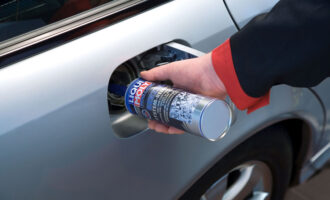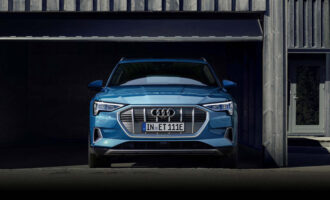
Industry specifications: Handbrake or accelerator?
Our industry is undergoing the greatest transformation in its history. This rapid technological advancement is forcing businesses to become more agile, to embrace the challenges of a digital industry, and to quickly and efficiently position their organisations for an uncertain future.
One aspect of our industry that is not so fast moving is the specification development process. Despite the increasing pace of technological change, many specifications development methods have been criticised as laborious and overly complex.

ILSAC GF-6 is the next major global engine oil specification to be released in North America, unlocking a new performance level of engine oils for spark-ignited internal combustion engines. Delays to GF-6 are well documented. Initial development of GF-6 began back in 2011 and we are still awaiting first licensing. Where are we at with this new standard? Teri Kowalski, principal engineer at Toyota Motor North America, Inc., returns to F+L Week in 2019 to be held from 4-7 March, at the Grand Hyatt Singapore, to provide a much anticipated update on ILSAC GF-6.
Despite several high-profile delays, specifications remain as important as ever in this hastily advancing world and provide the backbone of technological change. Standards guarantee quality, enable the industry to invent and manufacture superior products consistently, improve safety, fairness, and speed up the acceptance of products and practices globally.
The theme of F+L Week 2019 is “Advanced and Future Technologies – 2020 and Beyond,” where internationally acclaimed speakers and business thought leaders will address forthcoming fuel and lubricant technologies and trends. Alongside a myriad of new technologies, F+L Week will also provide an update on the latest industry specifications that will underscore the advancement of our industry over the next decade.
The American Petroleum Institute (API) is the largest U.S. trade association for the oil and natural gas industry and has been a cornerstone in establishing and maintaining standards for the global oil industry for almost 100 years. Kevin Ferrick, senior manager, Global Industry Services, manages API’s Engine Oil Licensing and Certification System (EOLCS), a voluntary licensing program designed to define, certify, and monitor engine oil performance. The familiar EOLCS Service Symbol “donut” and Certification Mark “starburst,” classify quality engine oils for gasoline and diesel-powered vehicles. Ferrick also manages API’s Diesel Exhaust Fluid Certification and Motor Oil Matters programs.
During the SAE Asian Steering Committee Colloquia at F+L Week on 7 March, Ferrick will summarize the Lubricants Standards Development Review Group’s evaluation of API’s engine oil standard-setting processes, in a presentation entitled “API: Potential Changes in New Specification Development.” The presentation will also provide a timeline for recommendations.
API is based in Washington, D.C., U.S.A., with their standards increasingly adopted in countries throughout the world. However, China is also quickly becoming a leader in specification development. China VI is considered one of the most stringent emissions regulations in the world, comparable to and in some cases more stringent than the European Union’s Euro VI norms.
While leading the world on emissions regulation is laudable, and likely to deliver substantial emission reduction in the medium to long term, it is not without its challenges. Raj Padmanabhan, Chevron Oronite’s Asia Pacific regional product line manager, Automotive Engine Oils & Viscosity Index Improvers, will highlight several of these challenges, with a presentation on “Heavy Duty Engine Lubrication and Challenges with China VI and India BS VI implementation.” Padmanabhan will summarise activities to meet China VI and BS VI needs, including a comparison of engine/fleet service data, the development of additive and lubricating oil formulations, and field performance data. Additionally, a presentation on India’s Bharat Stage VI challenges and opportunities for the oil industry will be made by K.K Gandhi, an industry consultant who had a long career as technical director of the Society of Indian Automobile Manufacturers (SIAM).
Also focusing on China specification advancements, Junmin Zhao, regional business manager, Engine Oils, from Lubrizol China, will address “The Significant Challenges for the China Lubricant Market in the China 6 Era.” Zhao will provide a light-duty perspective on China’s specification development impact.

The Japanese Automobile Manufacturers Association (JAMA) is a forerunner in the development of high-quality lubricants. JAMA has recently announced an April 2019 target date for first licensing of a new JASO passenger car motor oil (PCMO) specification. The new specification will allow for extra low viscosity engine oils such as SAE 0W-8. Kazuo Yamamori, project manager of the Tribology Material Department at Toyota Motor Corp. will outline the current status of this new standard with a presentation on the “JASO ULV (0W-8) PCMO Specification,” which will be unveiled on the global stage for the first time.
It is not only the automotive sector where specifications are continually evolving. Arguably, the marine industry is undergoing the greatest change to fuel supply of any sector during the next 18 months following the International Maritime Organization’s MARPOL Annex VI regulation, which is instituting change to global sulphur limits for marine fuel. A 2018 review and update of the European Ecolabel and Vessels General Permit has added further complexity for ship owners. Several industry experts will discuss recent changes to marine regulations, including Infineum’s Steve Benwell, Novvi’s Paula Vettel and Chevron Oronite’s See Tien Tan.
In the automotive sector, much of the recent changes to regulation is focused on fuel economy and emissions improvements — as we battle to reduce carbon dioxide and mitigate global warming. An increasing adoption of battery electric vehicles (BEV) that deliver no CO2 emissions is well documented. Many believe we are approaching the end of the road, so-to-speak, of the internal combustion engine (ICE). Though, the evolution of vehicles equipped with ICEs is still pertinent.
In a plenary address, Shuji Kimura, expert leader, Powertrain/EV Engineering Division, Nissan Motor Co., will promote the possibility of a new generation ICE ‘ZERO Emission Vehicle’ with the same well to wheel CO2 emission as BEVs.
Ramaprabhu, who is responsible for fluids development and approval of passenger car, tractor & commercial vehicles at India’s Mahindra & Mahindra, will present a study into the effect of lubricant formulations on efficiency improvements, the challenges of durability protection, and the limitations of formulations, entitled “Potential & Challenges in Fuel Economy Improvement of Automotive Vehicles by Lubricants.”
Kien-Wee Tan, technical service manager (SEAANZ), at Evonik Oil Additives Asia Pacific Pte. Ltd, will present on the impact of viscosity index improvers (VII) on the formation of piston deposits in fuel economy engine oils. Tan’s presentation will be complemented by Sinopec’s Senior Engineer Zhu Heju who will outline “Energy-Saving Lubrication Technology,” focusing on the effects of base oils, viscosity index improvers (VII) and friction modifiers on the fuel economy performance of an engine.

But are all these ICE adaptations merely futile against the inevitability of electric vehicle (EV) domination? Teri Crosby, global product line manager for Automotive Engine Oils, will provide Chevron Oronite’s future outlook on EV uptake, and will highlight the potential impacts to the lubricants and additives industries during the electric vehicles session on 6 March. Edward Becker, president of Friction & Wear Solutions, LLC, who retired from General Motors Corp. after 30 years of service, mostly in the Powertrain division, will provide a brief history of vehicle propulsion methods, followed by an update on the current status of EVs, including hybrids, batteries, and fuel cells. The lubrication challenges of each will be presented.
Global lubricant supplier Total has invested heavily in research and development to produce fluids that meet the new technical requirements of electric powertrains. However, the company is calling for greater understanding of fluid electrical properties and its compatibility with the new materials involved. Yanis Frikha, product development manager at Total, will deliver a presentation entitled “Hybrid & Electric Vehicles: A New Range of Fluid,” that will demonstrate how some fluids of the TOTAL QUARTZ EV-FLUID range are behaving on major properties in comparison to reference fluids in the market.
Join us in Singapore from 4-7 March 2019, for nine sessions, 40 industry-leading speakers, two pre-conference workshops, three prestigious industry awards, and an unrivalled networking and business matching platform. You can check out our preliminary program at the F+L Week 2019 website: https://www.flweek.fuelsandlubes.com/.







